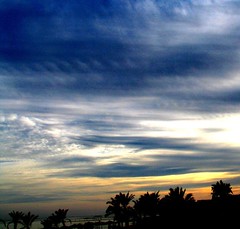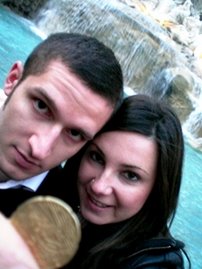my suggestions:
- Accomodations in Australia
- Accomodations, tours etc. in Barcelona
- B&B - Mainz, Germany -
- Circus-Berlin
- Garni Delta - Alta Badia -
- Globetrotter - Edinburgh
- Hostel in Mainz - Germany -
- Hostels all around the world
- Hostels all around the world 2
- Hostels all around the world 3
- Kolping - Vienna -
- Lienz -by bike-
- Madrid
- Residenza San Faustino -Verona-
- San Candido/Innichen -Tirol-
- Villa Luisa Francesca - Treviso -
- Villino Cecilia -Roma-
Thursday, September 06, 2007
GOOD BYE PROF. GARFIELD
Hope you're doing fine up there, Prof. Garfield!
Tuesday, July 03, 2007
holidays!
Thursday, May 17, 2007
PLE
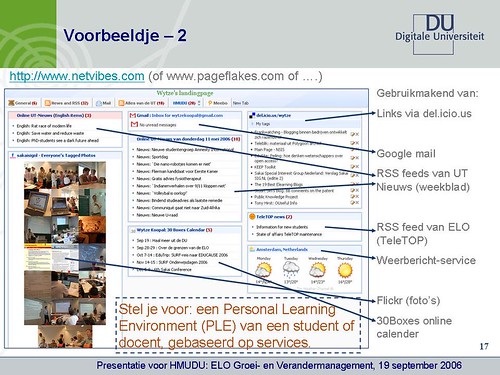 I didn't know where to start…but once I found the way I could have written million things!
I didn't know where to start…but once I found the way I could have written million things!I'm really happy I edited the Informal learning page on Edutech because I feel I brought forward something which will turn to be useful for my future.
We are always so busy in doing things that thinking about us, what we feel and think is difficult!
I think that you never finish learning and if you want to keep your mind flexible and active you can't stop learning, no matter how!
Our mind is a precious good we have been provided with and it is important to be aware of how to use it in the best way.
This year we have been given the chance of learning English in a practical way and I'm sure we all realized that although we grew up in this century we were cut off from the online world we have discovered lately. I found this last etivity rather stimulating and coherent with the course objectives.
So, first of all, I took notes to draw my concept map and at the end I realized that I learn by doing! As I wrote in my final paper, I learn more when I do things step by step and within a relaxed context.
In my map in fact there is a big space dedicated to people. I have friends all over the world and I learn a lot from them about their language and their culture! At the end there must be a reason why I decided to study languages, I'm talkative and curious!
First of all I divided my map into two main sections: formal and informal; I put into the first section everything related to uni (teachers, uni-mates, books, classes, lectures, labs, seminars and conferences, projects). I put into the second section all I do by myself such as reading books and magazines, watching films, satellite tv, listening to music and radio, writing emails, instant messaging, talking (on the phone or face-to-face), travelling, internet, blogs, wikis.
I made an interesting consideration: I put all the tools learnt during this course into the informal section and the reason is that during this last year we learnt as a group but I think also that we developed personal skills.
Sunday, May 06, 2007
Edutech Wiki
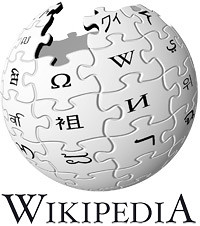
In brief, during last semester we've been training to cope with a pubblic Wiki!
I must say that it hasn't been easy for me to add and modify information on the page I chose to edit together with Tania (Informal Learning).
First of all Edutech Wiki is no longer the "protected place" where only people from our language course could directly intervene. On the contrary, there are experts and very competent people who contribute with their knowledge.
EduTech Wiki is a very reliable source - it has been created by people working at the University of Geneva - and if you contribute, what you write has to be of some utility, besides being supported by factual evidence (references).
You can write your own opinion as well, but I suppose that this is a prominent personalities' privilege. I felt ridiculous when I wrote "According to Elena Birolo.." . I wanted to add a personal touch to the page but I think it didn't work as a classmate suggested me to remove that sentence!!!:-)
While editing on Edutech Wiki I had the impression that its official character makes you feel a bit uncomfortable about your own contributions but also more responsible for what you add, modify, or delete. Even references and language used are chosen more carefully because you want to be on the equal footing with all those experts!
In our Wiki there were few people (us) contributing and what's more, we personally knew each other. To a certain extent the context was familiar, while Edutech Wiki is much more formal. Although we had to be impartial and objective also in our Wiki, last semester I wrote for us and for our peers in New Orleans, here I add my contribution for anybody will need to find out something about Informal Learning!
(photo from Flickr)
Thursday, April 12, 2007
YouTube
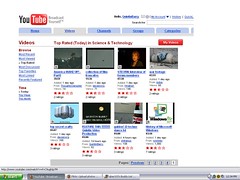
I knew that you can find really everything in YouTube and as soon as I had the change to visit this site I was very curious to look around. This time I got pleasantly lost because I saw many funny and weird videos! Youtube is user friendly as users can watch any video and grade it, while registered users have the possibility to upload as many videos as they want.
YouTube shelves its videos in broad categories; this means you have to know what you're looking for if you want to find something eye-catching. Tags, as usual, are fundamental as they function as filters and help finding what you really want to see.
There are videos for every taste: some are really hilarious, some nasty, some sweet, some serious and professionally competent. However, this tool should be carefully used and controlled especially after some recent facts happened in schools. YouTube and sites like it are said to encourage bullying among teenagers, who film fights or similar acts with their phones, upload videos to the net and are imitated by other teenagers.
This is surely a negative consequence of this exponentially growing website. There should be maybe more control to the quality of uploaded videos. In fact, according to Forbes, "YouTube is slowly cultivating a more mature fan base thanks to its vast archives of some 8 million video clips, with 65,000 additions daily". (from http://www.forbes.com/2006/09/28/youtube-internet-video-tech-media_cz_cs_0928tubesidebar.html)
As far as language learning is concerned I think it is possible to find many useful videos. I found, for example, a series of videos teaching the basics of German, a sort of survival course. It was elementary, simple but pleasing. The teacher was serious and kept repeating sentences more than once first in English, then in German. Nevertheless, there were courses for many other languages, for example Chinese, Japanese and so on.
The world is getting smaller, technology "invades" every field of our life, different cultures meet (and clash, sometimes) easily. There are new ways to communicate and to learn and nowadays we are given many tools and resources to learn everything online. Learning a language as autodidact, for example, is much easier than in the past.
On the other hand, for those who learn a language in the traditional way, there are web pages, radio, online TV, online magazines, computer programs and now even YouTube as support to their learning. The matter consists basically in finding efficient resources that really help you learn.
However, when your skills are rather advanced you can test your listening comprehension skills on YouTube, for free! YouTube is useful for many other things, too. For example in order to show how to do practical things, as Sarah did to show to us how del.icio.us worked. Or else, it might be useful for people who want to upload videos for relatives or friends that live far away.
A very positive aspect to point out is that you understand immediately how YouTube works, it's easy, funny, quick and free! In the future you might have to purchase if you want to use it, as it is so successful, but until it is free I think YouTube is a very good tool. It is fun (and personally I think that enjoying learning a language helps a lot) and learning is "visual". Moreover you can listen to a portion of a video over and over again until you get the sense of it.
Wednesday, April 04, 2007
youtube: Robbie Williams in Berlin
I couldn't decide so I uploaded both of my favourite Robbie Williams' songs!
He's absolutely a great performer and on stage he can really entertain you!
His songs have been the perfect soundtrack to many important experiences I've done in the last five years.
Last summer I went to his concert in Milan with my friends! "Angel" was the last song at the concert, the crowd got litterely cazy! The week after I went to Berlin with my best girlfriends and surprise surprise...Robbie Williams had in concert at the Olympia Stadium!!
We didn't manage to get the tickets :-( but we stand in front of his hotel for one hour wishing to see him! My friends were very patient in that occasion but I'm sure they had an amazing time too among those crazy teens!!! ;-)
Here is a flash of Berlin, die Musik: Zweiraumwohnung
videos from http://www.youtube.com
Friday, March 30, 2007
Feeds
 Every class is a surprise!!!How often have we written in our posts that the web is huge?!
Every class is a surprise!!!How often have we written in our posts that the web is huge?! Now we are learning how to expoit it efficiently.
This week we got to know with feeds aggregators, in particular bloglines.
I had never heard about aggreagtors and once again it's a revolution for me!
As Steven Bell wrote "news Aggregators:
1. Requires Little Time to Learn
2. Available at No Cost to Faculty
3. Improves Productivity and Efficiency (time on task)
4. The Procedure Itself is Simple and Requires No Real Technology Skill" (taken from http://staff.philau.edu/BellS/rss.htm#one)
We cannot but agree with him!!
Bloglines is an aggregator and collects websites of your interest. However, the most useful aspect is that it informs you when the websites you chose are updated. This is the special feature of aggregators, otherwise there would be no difference between them and bookmarks ;-)
Instead of visiting each single website, you enter your page on bloglines and all you want to know about is there. You feel like the Big Brother! Just one click and you can read and see all the updates in one single page. This is amazing, especially for those websites where information are updates regularly, i.e. newspaper on-line, blogs and the like.
However, there are still many website that don't use RSS feeds (I wanted to add "Die Zeit" and "Der Spiegel" to my "News from the world" playlist, but I couldn't), so I thought that this might be a rather new way of surfing the net!? I hope everybody in the future will know about aggregators, RSS because it is really conveniece. I recommend it to everybody!!
I'm not a computer expert and I'm really glad I'm learning all these "little" tips and tricks because we all know technology is extremely important. However, you have to learn how to exploit it properly if you want to take advantage from it. Every time I find out something new I realize that I'm using my skills and time more efficaciously and consciously. I'm learning how to find and filter sources more easily.
Thursday, March 22, 2007
Social bookmarks
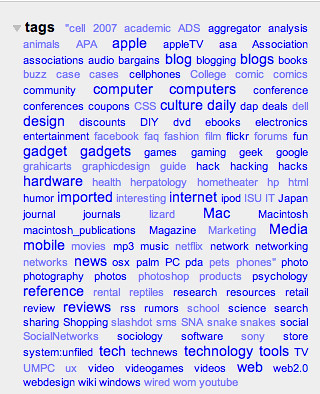
This e-tivity was rather challenging for two reasons: first, it took me some time to understand how del.icio.us worked :-). Second, as usual, the web is huge, many websites aren't well structured, some might be dispersive or maybe they turn out to be poor in contents.
Searching the net can be annoying, especially when you can't find what really interests you. del.icio.us really helps restricting the range of possibilities and this is extremely important, in my opinion.
To be honest, I didn't know anything about bookmarks (also because I'm not used to have them even in my personal pc!!) but I found the existence of this system quite intriguing: I can easily log in and find the websites of my interest from any pc! Moreover, I can share my resources and exploit those searched and saved by that somebodyelse! This is an amazing positive aspect of technology!
The web is an immense container and people share any kind of material, information, opinion, etc. There is everything but not everything is good for us! You have just muster patiente and root out the material you need as a virtual bookworm!
What I like the most is the "your network" section. It's our community! I put at somebosyelse's disposal my favourites sites and I can use theirs! This is something I really like!! What is online is public, it's for everybody - otherwise it wouldn't be there ;-) - and sharing information through this system is mutual help!
To help other users tags are fundamental as they give quick acces to websites selected by people who explored the net before us. They basically label sources on the strenght of their content, so that it's likely to read something we are really interested in. Differently, other search engines put together sources "randomly", so long as the website contains at least one tag we suggested.
Many menbers of our community searched for websites about:
- writing a thesis, essays, etc.:
- linguistics, such as the right pronunciation of words, variuos differences between AmE and BrE, pitch, accent;
- online dictionaries, glossaries, translation, slang and informal English;
The websites I liked the most are:
- How to Write an Essay -- 10 Easy Steps: A Step-by-Step Guide For Students Writing Essays, or For College Instructors Teaching Essay Writing; chosen by Alessandra Peron, because writing has always been a challenging activity. This website guides the "wishful" writer with simple steps. It provides external liks to newspapers; shows how to use certain softwares; gives explanations etc. I like the Practice section.
- Voice of America-Special English; chosen By Alessandra Teso, because we are given the possibility of downloading and listening to audio files.
- English Pronunciation; chosen by Alexandra, Tania (and I), because I think this site is rather techincal but still clear and easy to exploit.
- Free and commercial translations ; chosen by Alida, because it might turn to be useful for a prospective job.Common Errors in English; chosen by Ilaria, Tania (and I) because it provides a very accurate list of words that cause misunderstandings.
- the speech accent archive; chosen by Martina, because I like the section in which one can listen to audio file read by people with different accents. Moreover I like the phonetic transcription provided.
- Internet Article Writing; chosen by Susanne. I liked it becasue papers and internet have different syles and it is worth knowing the difference.
- Sound intelligent, powerful, polished, articulate, and confident; chosen by Viola, because I think that speaking in pubblic isn't always easy. especially for those who are basically shy!
- blog rules; chosen by Erica, because it gives good suggestions fo blogging.
- soundsofenglish; chosen by Erica Bergamin, because I'm interested in pronuonciation. I already knew this website. I think it is useful and I like the layout, too.
Some of them concerned difficult topic for learners that are no longer beginners! I appreciate websites useful for writing a thesis, as we are close to our degree. We searched material to help our classmates, too, not only ourselves. It is important to realize that sharing information helps other users, but it facilitates us as well. We save time to read material which is really pertinent!
Elena
Thursday, March 15, 2007
After two weeks...
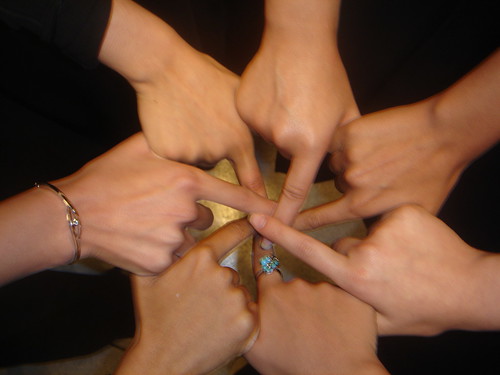 Three, two, one..go!
Three, two, one..go! Before starting this course I already knew what blogs are and that they are rather spread in the web. Even a few friends of mine have their own blogs, where they tell what happens in their life, they upload photos, they make reflections about their personal experiences, they quote impressive sentences taken from songs, books. Their blogs are rather personal, there's nothing extremely intellectual or technical, but all their friends contribute and reading the comments posted makes a lot of fun! I like this way of communicating! For this reason I'd like to use this blog in the future, so that everybody can post their comments!
As I really like travelling - even for a couple of days - I'm always looking for new destinations and as there are endless possibilities I often rely on what people I know suggest or I just make an attempt crossing my fingers :-). I would like this blog to become a space where people exhange experiences and destinations. For this aim comments are one of the most positive aspects of blogs. This is the section where surfers really exchange opinions, impressions, suggestions, tips, and even contact the blog's author.
Another aspect I had never considered before is the fact that blogs function as filter. As we all know, the web is huge: it can be extremely useful, if you know how to handle it. However, it might even be a "trap" as you can easily get lost looking for the pieces of information you need. So if one starts searching first for blogs that treat a specific topic, he might limit the sources fournished and it is easier to find the actual topic he wanted. Blogs are a very good medium to exploit somebodyelse's sources. As Sarah said, the web is a network and its greatest potentiality is the fact that everything can be connected.  Moreover, I really appreciate the fact that blogs are written in informal language. There is a lot to learn from many of them, for example idiomatic expressions. I already stated this in one comment I wrote: there isn't only one way to learn! It is important for us to speak proper English, but common people use different expressions, different words that might be more difficult for us to understand because we are not used to. Using blogs and the language through which the majority of people communicate leads us closer to the "real world"!
Moreover, I really appreciate the fact that blogs are written in informal language. There is a lot to learn from many of them, for example idiomatic expressions. I already stated this in one comment I wrote: there isn't only one way to learn! It is important for us to speak proper English, but common people use different expressions, different words that might be more difficult for us to understand because we are not used to. Using blogs and the language through which the majority of people communicate leads us closer to the "real world"!
(Photos from http://www.flickr.com)
